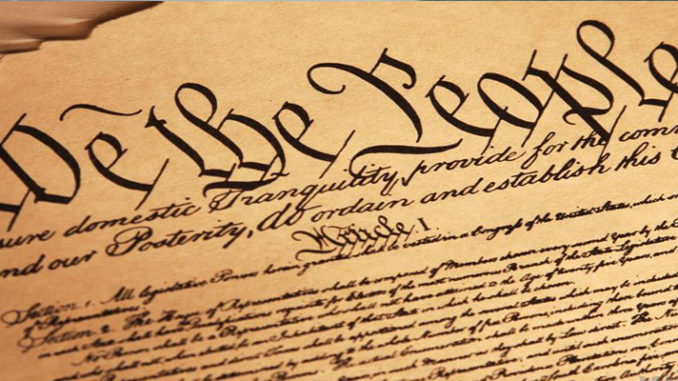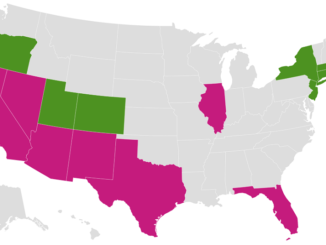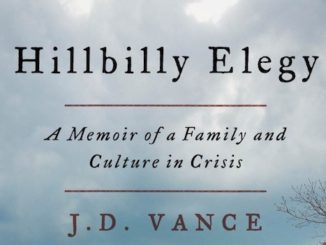
by Alex Gonzalez
If you live in Texas or California you probably already know where your state Electoral Votes will go. But if you want to have a perspective on where those Electoral votes will go next elections, you need to be aware that there will be political realignment in the next 10 years caused by the growth of the Latino population; and let’s just say that is realignment is shifting blue unless the GOP reinvents itself with new message that embraces Latino culture and immigration.
Political regional realignments occur through a generation or with a particular issue relevant to a specific voting-bloc living in neighboring states—continuity. Thus, whatever issues are most important for Latinos, will be the determinant factor on how those states will realign as Republican or Democrats in southwest.
State continuity is important for realignments because they are made of more than one cultural issue that is important to a single ethnic group residing in neighboring states. Additionally, state continuity is important because most political organizations are created by cultural community centers, businesses, and religious groups from those communities that spread the message through their own venues such churches and cultural centers with similar ‘cleavages”—cultural identity; this is how Jews, Irish, Italians, and Cubans built their political clout within the GOP or Democrat Party. And these cultural and religious “cleavages” can make members of the political Party break away from a Party if one specific issues is not address; and this may even transcend a superficial party identification. So cultural issues are more important than party identification as a Republican or Democrat, as it was it the case in the South over the Civil Rights bill a coalition of southern Democrat states turned Republican.
For example, this week Gallup had polls showing how social issues are important for Female voters. Their top priority is abortion, whereas men prioritize jobs. According to the Gallup survey:
 Women in the 12 key swing states have starkly different responses from men when asked in an open-ended format to name the most important issues for their gender in the 2012 election. A plurality of female registered voters offered abortion (39%) as the most important issue for women, followed by jobs, healthcare, the economy, and equal rights. In contrast, men see jobs (38%) and the economy (37%) as the two most important issues facing men.
Women in the 12 key swing states have starkly different responses from men when asked in an open-ended format to name the most important issues for their gender in the 2012 election. A plurality of female registered voters offered abortion (39%) as the most important issue for women, followed by jobs, healthcare, the economy, and equal rights. In contrast, men see jobs (38%) and the economy (37%) as the two most important issues facing men.
If this poll is accurate, about 40 percent of voters consider abortion a top issue, even male voters. Consequently, in swing states, social issues can have a big impact on how the needed coalition of Electoral Votes is gathered to win the presidency. Thus, if we look states with strong pro-life support, we can see that they are all lined-up together showing continuity in the mostly southern states, and Texas. Also, this continuity in Republican states is important for abortion since all these states are where a religion is very important for voters, especially in the South. Consequently, the continuity of states is important for political alignment because for states with strong pro-life views who rely on religious and community organizations to promote their ideological views on abortion across state lines. And, these civic, cultural, and religious organizations have a cross-state structure where they cross states lines to nearby community on the other side of the state to promote their religious, as well as political message.
For example, Texas is a very strong conservative pro-life state. As a result, pro-life groups operating in Northern Texas can have a say in how groups in southern Oklahoma views abortion laws, and eastern Texas can have an influence on western New Mexico since in both states have similar cultural and population mix—native Catholic Mexican-Americans.
Similarly, this is the same in case in strong liberal states with pro-choice attitude. States where women have a more pro-choice attitude—even among Republican suburban women—are all lined-up together in the west, upper Midwest, and New England. For instance, California pro-choice groups influence states like Nevada, Oregon, and Arizona who may have less financial resources to resist campaigns by liberal groups who promote secular sexual education among women under the motto of “women’s health.” Here again, abortion views may be a byproduct of independent groups and states continuity more than mere political mantra pushed by either party or candidates.
Latinos and Abortion and New Realignment
 Within ten years, Latinos will be half of all southwest states and Texas and most expert believe that real political clout for Latinos will happen in the next two elections. Thus, because all Latino in the southwest share a similar cultural experience, their political identity will come in larger numbers from religious and cultural organization that are formed, or will be created, to advance their own interests. As a result, how Latinos view abortion—among other issues important to Latinos— is matter of where they get the information or what states they reside in. But all Latinos, even though they attend church, are solidified on the issue of abortion.
Within ten years, Latinos will be half of all southwest states and Texas and most expert believe that real political clout for Latinos will happen in the next two elections. Thus, because all Latino in the southwest share a similar cultural experience, their political identity will come in larger numbers from religious and cultural organization that are formed, or will be created, to advance their own interests. As a result, how Latinos view abortion—among other issues important to Latinos— is matter of where they get the information or what states they reside in. But all Latinos, even though they attend church, are solidified on the issue of abortion.
For example, a Pew Center on religion–Latinos, Religion and Campaign 2012 Catholics Favor Obama, Evangelicals Divided—show that “Latinos are divided by religion in their preferences in the upcoming presidential election. According the Pew survey:
Three-quarters of Latino Catholics and eight-in-ten religiously unaffiliated Latinos support President Barack Obama’s re-election. However, among Latino evangelical Protestants, who account for 16% of all Latino registered voters, just 50% prefer Obama, while 39% support his Republican challenger, Mitt Romney.
But, as the survey shows, support for Obama among Latino Catholics does not translate into support for a pro-choice attitude. For example, the study shows that Hispanic Catholics are divided on the issue, with 50% saying abortion should be legal in most or all cases and 45% saying it should be illegal in most or all circumstances, even though 70% of Latino voters say they will vote for Obama. However, Latino Evangelicals, who are the most conservative Republicans and pro-life Latino sub-group, are also split on support for Mitt Romney whereas in the past they supported John McCain and W. Bush with a 54% (you can read the interpretation of Foxnews Latino where they claim that ” Mitt Romney Enjoys Strong Support Among Latino Evangelicals with only 39%. “) But in reality these numbers are lower than what John McCain and George W. Bush received from Latino Evangelicals. So there is no direct correlation between support for Obama and support for pro-choice attitude among Latinos. But there is also no direct correlation between pro-life Latino Evangelicals and support for a Republican candidate, for now. But there is one correlation within church attendance: the more you attend church the less likely you are to vote for Obama. Also, where Latinos get their information is mainly through their clergy on issues of abortion, immigration, and gay marriage.
Roughly half of Latinos (54%) who attend religious services at least once a month say they have heard their clergy speak out about abortion, while 43% have heard from the pulpit about immigration, and 38% say their clergy have spoken out about homosexuality. A smaller proportion, roughly three-in-ten, report hearing from their clergy about candidates and elections…. Hispanic evangelical Protestants are more narrowly divided, with half supporting Obama (50%) and about four-in-ten supporting Romney (39%). This is in contrast with white, non-Hispanic evangelical Protestant registered voters, among whom a solid majority supports Romney (74%). Most Latino registered voters favor Obama over Romney regardless of their self-reported level of religious attendance.
 As a result, the political views on social issues important for Latinos are promoted through support groups like churches and cultural centers. which shape the views of how Latino voters perceive on issue across state lines since churches have multy-states structure. Therefore, whichever party manages to align their agenda with these cultural and religious leaders to promote their social issue will most likely help to get the message to voters. And there are two issues currently being promoted by these religious groups across states and in both Catholic and Evangelical Latinos organizations: Abortion and Immigration.
As a result, the political views on social issues important for Latinos are promoted through support groups like churches and cultural centers. which shape the views of how Latino voters perceive on issue across state lines since churches have multy-states structure. Therefore, whichever party manages to align their agenda with these cultural and religious leaders to promote their social issue will most likely help to get the message to voters. And there are two issues currently being promoted by these religious groups across states and in both Catholic and Evangelical Latinos organizations: Abortion and Immigration.
But the views on abortion are evenly split among Latinos Catholics and “Latino Evangelical Protestants, who make 15% of Latinos, are also divided with about half identifying as Democrats (52%) and 36% as Republicans. Thus, even the fact that Hispanic Evangelicals self-identify as Democrats shows that there is not a monolithic views on abortion or among religious Latino groups. But there is one issues that overall all 90-percent of Latino religious groups support, an immigration reform, among both Catholics and Evangelicals. Thus, immigration has become a unifying issue more important that abortion for religious Latino groups in the US.
For this reason, Latinos may create a new realignment on the issue of immigration, because, both Catholic and Evangelical Latinos groups are developing civic and religious support groups across states lines with cultural and historical continuity that is focused on immigration and cultural similarities more than on abortion or even gay marriage. Cultural cohesiveness and state continuity, with grass-roots community support groups who promote a socio/political agenda, tend to develop political powers. And these groups can break with their party when the Party fails to recognize their issues—cultural emotional cleavages. This was how Nixon manage to realigned the South to the Republican Party in 1968 with the help of Bill Graham and the Christian Coalition. This cultural and regional “cleavages” is what will or break the next political realignment in the southwest.
Republicans Politicians and Party bosses who want to make the argument that Latinos will come to the GOP just because Latinos are naturally conservative, especially on issues such as abortion, merely use this narrative to avoid addressing the issue of immigration. But they know that cultural “cleavages” are more important than talks about “Republican principles.” For example, Republicans know that the foreign-born in Florida traditional vote Republican, especially among older pre-Marielitos Cubans who fled the communist Castro regime in Cuba in the 1960s. Hence, part of the Republican lure for Cuban-Americans has always been a mandatory anti-Castro speech to get the Cuban vote out. Thus, Republicans and Cubans have built trust based on an issue that has nothing to do with Taxes or pro-life views.
The entire Irish-American democratic base abandoned a Democratic president Woodrow Wilson just because the issue–the Independence of of Ireland in within the Versaille Peace Treaty–in industrial states that had a large Irish catholic base that demanded a free Ireland auspiced by the Democratic Party. The anti-Wilson campaign was carried on by cultural civic and religious organizations in states that had cross-state structure in neighboring states. As a consequence, ethnic solidarity, and particular issues, in American can make or break a traditional collation of voters. And for Latinos in the southwest, immigration has become a cross-generational emotional political issue that crosses party lines. Latinos, too, were willing to break away from the Democrat Party when Bush promoted immigration since he knew that native Latinos in the southwest and immigrants have common culture.
For instance, a recent study by the University of New Mexico shows that the Political gap narrows between state’s native-born, immigrant Hispanics. According to study by Christine Sierra, UNM professor of political science and director of the Southwest Hispanic Research Institute, people tend to think there’s a major cleavage among Hispanics in New Mexico, between those who are native-born and recent foreign-born arrivals “
These data indicate less cleavage and more consensuses on the politics of immigration in the state,” she said. “I would suggest that we are moving towards a commingling of interests …the increasing immigrant population,” she said. “There is also another phenomenon, though, that is very important to acknowledge…..That is the existence of mixed-status families. We have families across this country and in this state who are composed of U.S. citizens, permanent residents and undocumented people.
Therefore, regardless of whether 4th or 5th generations, the native interaction with Hispanic immigrants and mixed marriages is increasing the “commingling of interests” between natives and immigrants—regardless of legality—is making immigration a cultural unifying issues overcome any “cleavages” for Latinos of all background and religious identification. And these unifying views are stronger than views on abortion or pro-choice policies. Consequently, immigration is the only issue that has the potential to create a new political realignment in the southwest because Latinos will be willing to vote against any party that continues to oppose an immigration reform.
Therefore, a pro-life approach alone from Republicans to woo Latinos—Mexican-Americans in the southwest– to the party will not work since both Catholic and Evangelical group do not support a complete ban on abortion. More importantly, only half of the most religious Latino group Evangelicals currently supports the Republican candidates Mitt Romney. Therefore, this will be a test for Republican to see if event their most fervent Latino Evangelical voters, who in 2004 and 2008 vote Republican, are shifting away from the GOP due views on immigration.
The “Tea-Evangelicals” coalition have very specific issues: Pro-life, Sanctity of Marriage, and Israel. But both Catholic and Evangelical groups have turned immigration into a group cross-generational unifying issue. How “Tea Evangelicals” will do to bridge this cultural religious chasm with Latinos will be essential for Republicans to win the White House. More importantly, Evangelicals will have to come to Latinos more since Latinos reside in states with large Electoral votes while Evangelical are in large but rural states with few Electoral votes.
Alex Gonzalez is a political Analyst and Political Director for Latinos Ready To Vote. Comments to [email protected] or @AlexGonzTXCA



